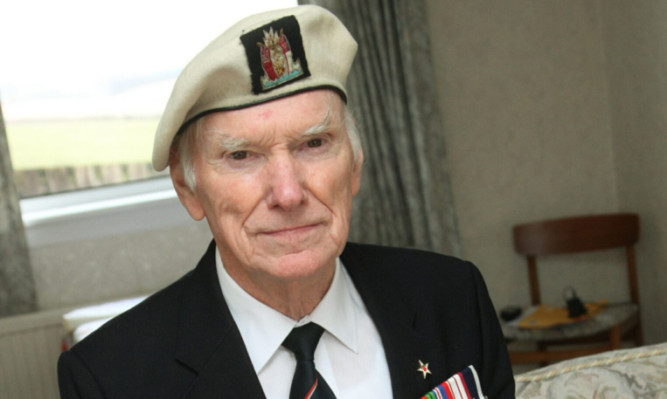SCOTTISH VETERANS who sailed on Arctic convoys to support the Russian war effort have been told they cannot collect bravery medals from Moscow.
Some 3,000 servicemen from across the UK took part in Arctic missions to support fighting on the eastern front during the Second World War, with Winston Churchill describing it as “the worst journey in the world”.
The men involved have now been offered Ushakov medals by the Russian government in recognition of their extreme courage.
While it is only weeks since the UK Government conceded that the British veterans deserved Arctic Convoy medals, the grateful Russians have acknowledged the role played by the British naval men for years.
However, British veterans have now been told by the Foreign and Commonwealth Office (FCO) that accepting the Ushakov medals would break rules in this country.
The FCO told veterans that because they have already been honoured with the Atlantic Star campaign medal they could not accept the Russian offer.
Dunfermline man Ken Reith (85) has made regular trips to Russia since the war.
Yesterday he said he would rather receive the “heartfelt” Russian medal than the “reluctant” British one.
He said: “The Russian medals we’ve been given up to now were commemorative.
“The one the Russians are offering now is a special state award for outstanding courage during world war two.
“I would prefer to get the Russian medal, to be honest, because at least it is being given with heartfelt gratitude instead of the one we’ve been fighting for from British bureaucrats for almost 70 years.”
An FCO spokesman said the department appreciated the Russian government’s wish to recognise the “brave and valuable” service given by veterans of the Arctic convoys.
He said: “The rules on the acceptance of foreign awards clearly state that in order for permission to be given for an award to be accepted, there has to have been specific service to the country concerned and that that service should have taken place within the previous five years.
“Additionally, permission cannot be granted if they have received, or are expected to receive, a UK award for the same services.
“We look at each request for permission to confer a foreign or Commonwealth state award upon a British citizen on an individual case-by-case basis.”
An e-petition asking the Government to reconsider has been set up on the Downing Street website and can be found at
submissions.epetitions.direct.gov.uk/petitions/40174
.
